UPCOMING SEMINARS
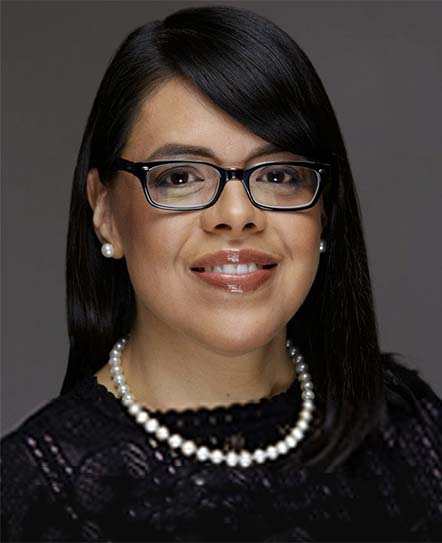 Dr. Maria Ledesma
Dr. Maria Ledesma
Generational status within the professoriate remains largely under-addressed and under-theorized in higher education. This work suggests that many of the socialization practices created for and directed towards first-generation students continue to have relevancy for faculty who identify as first-generation. First-generation faculty encounter similar structural and systemic challenges in pursuit of post-secondary success. Focus group data affirms the need to cultivate more fair and equitable socialization processes for historically under-represented academicians who identify as first-generation. Building upon the concept of a college-going culture, and drawing on focus-group data, I offer a tenure attaining culture as a socialization model aimed at supporting and retention and success of historically under-represented first-generation faculty and graduate students of color aspiring towards the professoriate.
PAST SEMINARS
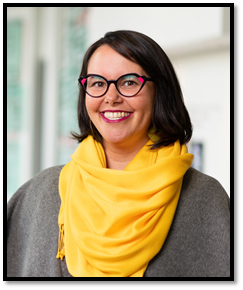
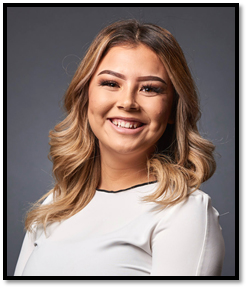
Erin L. Castro, PhD & Estefanie Aguilar, BS
Thursday, November 21, 2019 — 12:00 to 1:00 pm, Collegiate Room, Union Building
In 2019, the Common Application removed the required collection of criminal history information on the common portion of their application platform. Their announcement was a reversal of a stance it took just a year prior to keep questions regarding prior criminal history required for undergraduate applicants. Common App's announcement drew much attention, and was the culmination of numerous and ongoing efforts by government agencies, private and philanthropic foundations, and student organizations requesting to have the question removed from initial screening processes for undergraduate admissions. At the same time, the numbers of colleges and universities providing higher education in prison has grown, with a large boost from the federal Experimental Sites Initiative, Second Chance Pell Pilot Program.
Little is known about how prior criminal history information is used during admissions processes. This lack of clarity points to serious equity concerns regarding access to postsecondary education for formerly incarcerated people and those with prior criminal histories. Our research examines a small set of institutions that have made commitments to serving incarcerated people through credit-bearing college-in-prison programs. We restrict our analysis to institutions that use the Common App because of the platform's wide usage and because of the change announced in 2018 to remove questions about prior criminal history from its standard application. Given the national attention placed upon higher education in prison, we are especially interested in how Second Chance Pell participating institutions respond to the Common App change.
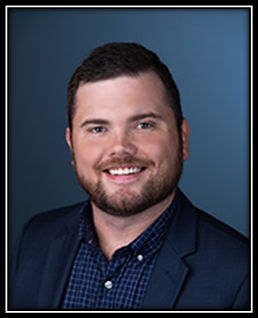
Dr. Zak Foste
Contemporary discourse on race typically focus on the most overtly hateful and racist individuals on campus. Although these individuals warrant our collective attention, an exclusive focus on their behaviors and actions obstructs a deeper understanding of how supposedly enlightened, progressive white students perpetuate and maintain the racial status quo on colleges and universities around the country. In this talk, Zak Foste examines three particular discursive strategies employed by white undergraduates that reproduced the racial status quo on campus. Each of these strategies highlights a preoccupation with white racial innocence, often at the expense of any meaningful critique of race relations within the institution.
Joshua Larson, MA, Anna Johnson, M.Ed., Sharon Aiken-Wisniewski, Ph.D
The Scholar-Practioner and Research
The scholar-practitioner is defined as someone who "engages in research and scholarly endeavors while continuing in the role of an administrator or practitioner" (Kidder, p. 1). The engagement with students, development of programs, and creation of policy are all informed by a blend of literature and experience for the scholar-practitioner. These interactions with stakeholders, programs, and policies produce new questions that are not addressed in the literature and suggest an interesting question for research. Thus, the scholar-practitioner seizes the opportunity to answer these questions on behalf of practice as well as contributing to new knowledge that will impact their field and the higher education community broadly.
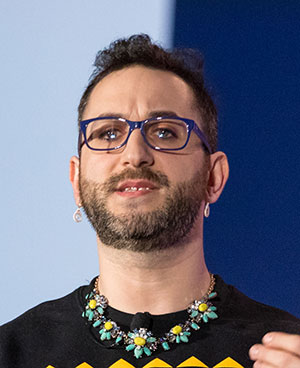
Dr. Z Nicolazzo
Just Go In Looking Good: The Resistance, Resilience, and Kinship-Building of Trans* College Students
At a time of increasing inter/national precarity for various marginalized populations,
there has never been a more pressing need to work toward liberation. This is certainly
true for
transgender people, including transgender college students.
In this talk, Dr. Z Nicolazzo will discuss the experiences of transgender college
students, and what they can teach everyone
about envisioning more equitable and just educational spaces.
Sponsored by the Department of Educational Leadership and Policy and the Division
of Gender Studies at the University of Utah.
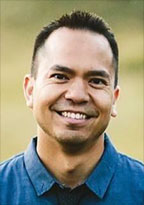
Dr. Kyle Reyes
Living My Dissertation: Underrepresented Faces in Administrative Spaces
Dr. Kyle Reyes currently serves as Vice President of Student Affairs at Utah Valley University. As an ELP PhD graduate, Kyle's dissertation focused on the navigational experiences of senior administrators of color as they advocated for equity and social justice issues. Dr. Reyes will also share how such research influenced his own journey in higher education leadership in various roles including Chief of Staff to the President, Chief Diversity Officer, and now, Vice President.
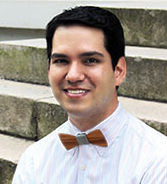
Dr. Paul Rubin
State governing agencies were originally established to mitigate the influence of the government and politics on matters related to public higher education. However, in light of policy changes in Wisconsin and controversial presidential hires in Iowa and North Carolina, there have been growing concerns that elected officials have extended their influence beyond traditional limits and are motivating the actions of these organizations. Given that state governing agencies are charged with overseeing statewide policies related to higher education, any external influence into these decision-making processes can have long-lasting impacts on the sector. One less understood catalyst for political influence are through governing agencies' oversight boards (state boards of regents), which are most often composed of individuals appointed by political officials or are publicly-elected. This talk will review the current literature on the role of state boards of regents and examine the potential influence of different appointment mechanisms on the policy process.
Dr. Uma Jayakumar
Diversity Research Advocacy in a Colorblind Policy Context: Moving into the Contradiction
Uma M. Jayakumar is an Associate Professor in the Graduate School of Education at University of California, Riverside. Her scholarship and teaching address racial justice and policy issues in higher education, with a focus on how institutional environments such as campus climates and cultures shape college access and outcomes and how students experience and resist barriers to inclusive engagement. Dr. Jayakumar received her doctorate in Higher Education and Organizational Change from the University of California at Los Angeles. She was one of 21 social science researchers who co-developed amicus briefs summarizing key research findings related to the use of race-conscious admissions practices, in the 2 most recent affirmative action national cases. The briefs, submitted to The Supreme Court by the Civil Rights Project at UCLA, supported the need for race-conscious admissions and diversity/inclusion in Higher Education Institutions. Dr. Jayakumar's scholarship is also featured in Educational Researcher, Journal of Higher Education, Harvard Educational Review, Diverse Magazine, and reports to foundations and organizations interested in advancing diversity and inclusion.
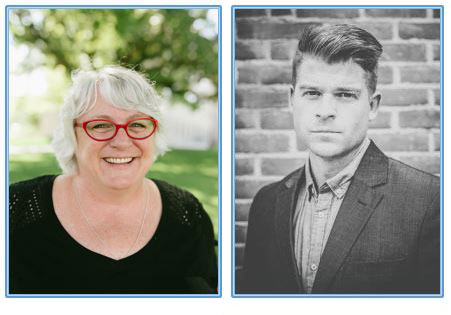
Dr. Amy Bergerson and Dr. Mike Martineau
The Promise and Perils of Data Analytics
Dr. Bergerson is a Professor in the Department of Educational Leadership and Policy and Associate Dean for Undergraduate Studies at the University of Utah. Recently, Dr. Bergerson has been engaged in the implementation of an innovative approach to college student persistence through the Student Success and Empowerment Initiative.
Dr. Mike Martineau currently serves as the Director of Institutional Analysis at the University of Utah where he leads the teams responsible for official reporting and analytics efforts for the Institution. Dr. Martineau's research has been focused around areas of higher education factors influencing student achievement and outcomes. Particularly, his research provides empirical evidence of the efficacy of institutional programs and policies on student enrollment, persistence, and graduation outcomes.
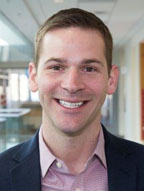 Dr. Jason Taylor
Dr. Jason Taylor
Assistant Professor, Educational Leadership and Policy Department, University of Utah
The College Completion Savior: Community Colleges and the Equity Promise
Since President Obama announced the American Graduation Initiative (AGI) in 2009 at
Macomb Community College, community colleges have received unprecedented national
attention and have been a centerpiece of state and federal college completion policies.
The expectations for community colleges to "produce" more graduates and increase institutional
performance have
never been higher. However, community colleges are situated at the bottom of a stratified
system of higher education, whereby structural factors (e.g., inequitable resource
allocation, inadequate student services, biased state and federal policies) work against
reducing deeply entrenched inequities in community college student experiences and
outcomes.
Recent community college innovations and reform efforts are unlikely to address these structural factors, and they often decenter or ignore educational inequity. As a result, new policies may be effective for some students, but they are unlikely to reduce existing economic and racial inequities in student outcomes. This talk will review the empirical evidence on community college innovation and reform efforts to assess their overall effectiveness and assess the extent to which they are likely to reduce or reproduce existing inequities in college access and success.
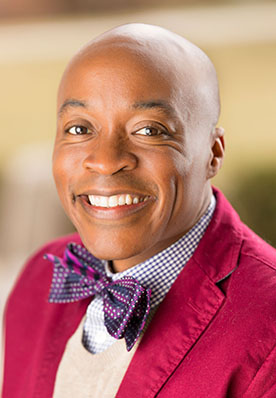 Dr. Stephen John Quaye
Dr. Stephen John Quaye
Associate Professor, Educational Leadership Department at Miami University, President
of ACPA: College Students Educators International
Scholar-Activism And Self-Care In An Era Of #BlackLivesMatter
Stephen John Quaye is a parent of a remarkable, inquisitive, kind first-grader named
Sebastian. Stephen also believes that hearing and sharing our stories with others
can foster connections and learning across differences. He values the power of dialogue
and activism as vehicles to promote change in society. In the midst of so much pain
and oppression in our society, he sees the need for practicing self-care and working
to heal and has begun a study on the strategies Black student affairs educators use
to heal from racial battle fatigue. He also loves bow ties, baking (he makes pretty
tasty scones and key lime pies), reading, cycling, and writing poetry. In his professional
life, he is a faculty member in the Student Affairs in Higher Education Program at
Miami University, where he works with graduate students to help them find their passions
and voices. He is also President of ACPA: College Student Educators International.
His work is published in different venues, including the Journal of College Student
Development, the Journal of Diversity in Higher Education, and Teachers College Record.
He is also editor (with Shaun R. Harper) of two editions of Student Engagement in
Higher Education: Theoretical and Practical Approaches for Diverse Populations, as
well as an author on the most recent edition of Student Development in College. His
Ph.D. is from Penn State University, his master's degree is from Miami University,
and he holds a bachelor's degree from James Madison University.
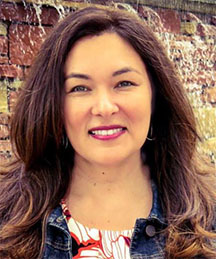 Dr. Susana Muñoz
Dr. Susana Muñoz
Assistant Professor of Higher Education Leadership and Ethnic Studies Faculty Associate,
Colorado State University
Identity, Social Activism, and the Pursuit of Higher Education: The Journey Stories of Undocumented and Unafraid Community Activists
Dr. Susana Muñoz is an Assistant Professor of Higher Education in the School of Education at Colorado State University (CSU). Before accepting a faculty role at CSU, Dr. Muñoz served as a faculty member at the University of Wisconsin-Milwaukee in the Administrative Leadership department. Her scholarly interests center on the experiences of underserved populations in higher education. Specifically, she focuses her research on issues of access, equity, and college persistence for undocumented Latina/o students, while employing perspectives such as Latino critical race theory, Chicana feminist epistemology, and college persistence theory to identify and deconstruct issues of power and inequities as experienced by these populations. She utilizes multiple research methods as mechanisms to examine these matters with the ultimate goal of informing immigration policy and higher education practices. Her first book "Identity, Social Activism, and the Pursuit of Higher Education: The Journey Stories of Undocumented and Unafraid Community Activists" (Peter Lang Publishing) highlights the lives of 13 activist who grapple with their legality as a salient identity. Her research can also be found in the International Journal of Qualitative Studies, Qualitative Inquiry, the Journal of Student Affairs, Research, and Practice, and Teachers College Record.
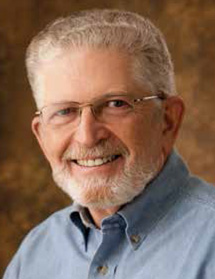 Dr. Jack Newell
Dr. Jack Newell
Emeriti Professor in Educational Leadership and Policy, University of Utah
America's Most Radical (and enduring) Experiment in Undergraduate Education: Writing the History and Leading the Charge at Deep Springs College
Newell's book is the story of Deep Springs College and L. L. Nunn. Deep Springs was founded in 1917 by social visionary Lucien L. Nunn, an openly gay Utah man who pioneered the production of hydroelectric power world-wide between 1891 and 1911. Nunn experimented with early on-site training of electrical engineers, but shifted his focus to the preparation of innovative leaders through emersion in the liberal arts and sciences combined with highly democratic institutional governance.
Jack served as dean of the University of Utah's undergraduate academic programs (then called the “Liberal Education Program”) for sixteen years while also being a professor in ELP. From 1995 to 2004, he served as president of Deep Springs College and brought that institution back from the brink of bankruptcy to the vitality it enjoys today. Since retiring from Deep Springs in 2004, he has taught ethics and social justice courses in the Honors College at the University of Utah and, occasionally, a philosophy of leadership seminar in ELP.
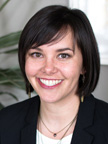 Dr. Erin Castro
Dr. Erin Castro
Assistant Professor in Educational Leadership and Policy, University of Utah
Who do we educate, and why?: Cautioning against "reduced recidivism" as a rationale for college-in-prison
Higher education in prison is experiencing a moment of increased attention throughout the United States. The Second Chance Pell Program, an Experimental Sites Initiative facilitated by the U.S. Department of Education, has helped to propel access to education inside prisons into mainstream discourse. The commonsense justification provided for increasing access to higher education in prison, a bipartisan language spoken across the political landscape, hinges on a compelling rationale: access to higher education in prison reduces recidivism. Turning toward higher education as a potential corrective for national recidivism rates may seem innocuous, but recidivism rates currently exceed 67.5%. This essay is concerned with the veiled purposes of higher education that underlie commonsensical rationales regarding access to higher education for incarcerated people during an era of hyperincarceration. Anti-recidivist discourses associated with the provision of postsecondary education inside prisons are coordinated branches of the carceral state and thus deserve our careful attention and scrutiny.
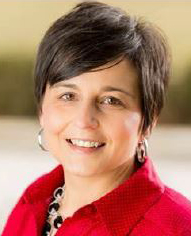 Dr. Chris Linder
Dr. Chris Linder
Assistant Professor of College Student Affairs Administration, University of Georgia
Historical and Power-Conscious Approaches to Addressing Sexual Violence on Campus
Dr. Chris Linder is an Assistant Professor of College Student Affairs Administration at the University of Georgia. Prior to becoming faculty, Chris worked as a student affairs educator and administrator for 10 years, spending the majority of her career as a director of a campus-based women's center, supporting survivors of sexual violence. Chris's research interests include activist identity development and creating and maintaining equitable campus environments, specifically focusing on race and gender. Chris recently co-edited a book with Dr. Jessica C. Harris examining the history and context of sexual violence on college campuses. The book, Intersections of Identity and Sexual Violence on Campus, centers experiences of minoritized groups, including women of Color, LGB and trans* students, and students with disabilities to improve campus-based practices related to sexual violence. Chris is also co-editor of the 2nd Edition of Multiculturalism on Campus, and has published work on student activism, white women's anti-racist identity development, and racism in graduate preparation programs in a variety of journals in higher education and student affairs. Currently, Chris coordinates the student affairs PhD program at the University of Georgia and teaches a variety of courses on equity, diversity, and inclusion in higher education and student affairs and qualitative research in education.
